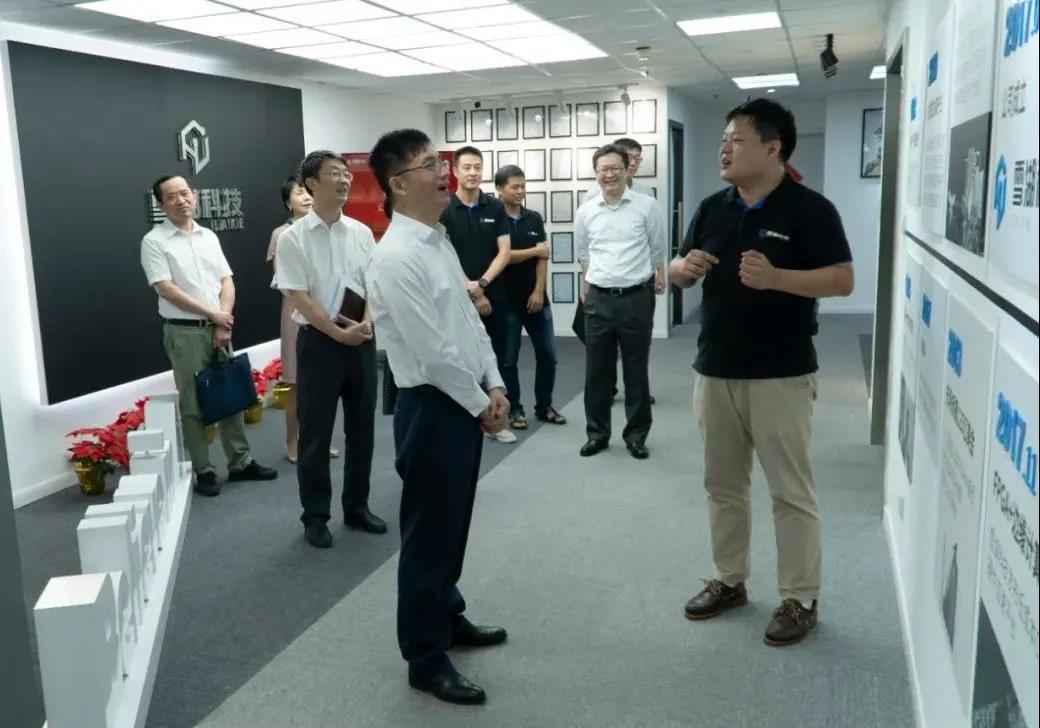жңүе…ігҖҠи§үйҶ’е№ҙд»ЈгҖӢиӢұиҜӯжј”и®І?и§үйҶ’е№ҙд»ЈиӢұиҜӯжј”и®І
гҖҢжқҘжәҗ: пҪңиҜ‘В·дё–з•Ң IDпјҡYEEWORLDгҖҚ
еңЁдёӯеӣҪж—ҘжҠҘзӨҫвҖң21дё–зәӘжқҜвҖқе…ЁеӣҪиӢұиҜӯжј”и®ІжҜ”иөӣзҡ„еҚіе…ҙй—®зӯ”зҺҜиҠӮпјҢ17еІҒе°‘е№ҙжұӘж Һ宬[chГ©ng]еј•з”ЁгҖҠи§үйҶ’е№ҙд»ЈгҖӢйҮҢиҫңйёҝй“ӯзҡ„еҗҚеҸ°иҜҚпјҢе°ҶдёӯеӣҪдәәзҡ„зІҫзҘһеҪ’з»“дёәвҖңйӘЁеӯҗйҮҢзҡ„жё©иүҜвҖқпјҢд»ҘдёҖж®өзІҫеҪ©зҡ„иӢұж–Үжј”и®ІеҶІдёҠзғӯжҗң гҖӮ
еңЁд»–зңӢжқҘпјҢжё©иүҜжҳҜдёҖз§ҚеҠӣйҮҸпјҢжҳҜдёҖз§ҚеҗҢжғ…е’Ңдәәзұ»жҷәж…§зҡ„еҠӣйҮҸ гҖӮ
I would like to define the spirit of the Chinese people as "inexpressibly gentle, with the combination of intelligence and sympathy."
еҮӯеҖҹиҝҷз§ҚеҠӣйҮҸпјҢдёӯеӣҪеңЁзҹӯзҹӯзҡ„72е№ҙйҮҢеҲӣйҖ дәҶи®ёеӨҡеҘҮиҝ№ гҖӮдҪҶжҳҜпјҢжұӘж Һ宬иҜҙпјҢжҲ‘们没иғҪи®©дё–з•Ңе®Ңе…ЁдәҶи§ЈиҝҷдәӣеҘҮиҝ№пјҢжІЎиғҪи®©дё–з•ҢдәҶи§ЈжҲ‘们зҡ„дјҹеӨ§ гҖӮ
вҖңWhat is the change?вҖқжұӘж Һ宬е°ҶиҝҷдёӘй—®йўҳжҠӣз»ҷдәҶеҗ¬дј— гҖӮ
еңЁиҝҷдёӘвҖңзҷҫе№ҙжңӘжңүд№ӢеӨ§еҸҳеұҖвҖқдёӯпјҢзңҹжӯЈзҡ„еҸҳеҢ–дёҚеңЁдәҺж–°еҶ з–«жғ…пјҢдёҚеңЁдәҺз»ҸжөҺеҚұжңәпјҢд№ҹдёҚеңЁдәҺзҺҜеўғй—®йўҳ гҖӮ
вҖңWe are the change. China is the change.вҖқ
жұӘж Һ宬з»ҷеҮәдәҶдёҖдёӘи®©жүҖжңүдәәйғҪеҚ°иұЎж·ұеҲ»зҡ„зӯ”жЎҲпјҡзңҹжӯЈзҡ„еҸҳеҢ–еңЁдәҺдёҚж–ӯи§үйҶ’зҡ„йқ’е№ҙпјҢеңЁдәҺдёҚж–ӯеҙӣиө·зҡ„дёӯеӣҪ гҖӮ

ж–Үз« жҸ’еӣҫ
жұӘж Һ宬иҺ·еҫ—дәҶжң¬еұҠй«ҳдёӯз»„еҶ еҶӣпјҢиҝҷи·қзҰ»д»–дёҠж¬ЎжҚ§еӣһеҲқдёӯз»„еҶ еҶӣпјҢд»…д»…иҝҮеҺ»дёӨе№ҙ гҖӮ
д»–жҳҜеҰӮдҪ•еҹ№е…»иҮӘе·ұзҡ„иғҪеҠӣдёҺиҮӘдҝЎзҡ„пјҹеҸҲжҳҜеҰӮдҪ•зңӢеҫ…иҮӘе·ұиә«еӨ„зҡ„дё–з•Ңе’ҢжңӘжқҘзҡ„пјҹ
еёҰзқҖиҝҷдәӣй—®йўҳпјҢжҲ‘们专и®ҝдәҶжұӘж Һ宬 гҖӮ
дёүдёӘй—®йўҳ
03:12в–І жұӘж Һ宬еңЁз¬¬19еұҠвҖң21дё–зәӘжқҜвҖқе…ЁеӣҪиӢұиҜӯжј”и®ІжҜ”иөӣй«ҳдёӯз»„жҖ»еҶіиөӣжј”и®І
жј”и®ІзЁҝе…Ёж–Үпјҡ
History as a Mirror
Mirrors and history can both cause вҖңreflectionsвҖқ, but with different meanings.
й•ңеӯҗе’ҢеҺҶеҸІйғҪиғҪеҸҚжҳ зҺ°е®һпјҢдҪҶдёӨиҖ…зҡ„еҗ«д№үдёҚеҗҢ гҖӮ
From a mirror, I see myself. From history, we know ourselves.
еңЁй•ңеӯҗйҮҢпјҢжҲ‘зңӢи§ҒиҮӘе·ұпјӣ
еңЁеҺҶеҸІдёӯпјҢжҲ‘们и®Өжё…иҮӘе·ұ гҖӮ
History, as a mirror, gives answers to three questions: Who we are? Where we are? And What to do? The answers to these questions constitute the source of our confidence.
еҺҶеҸІпјҢеҰӮдёҖйқўй•ңеӯҗпјҢеӣһзӯ”дәҶд»ҘдёӢдёүдёӘй—®йўҳвҖ”вҖ”жҲ‘们жҳҜи°ҒпјҹжҲ‘们еңЁе“Әе„ҝпјҹд»ҘеҸҠпјҢжҲ‘们иҰҒеҒҡд»Җд№ҲпјҹиҝҷдёүдёӘй—®йўҳзҡ„зӯ”жЎҲжһ„е»әиө·жҲ‘们民ж—ҸиҮӘдҝЎзҡ„жқҘжәҗ гҖӮ
гҖҗжңүе…ігҖҠи§үйҶ’е№ҙд»ЈгҖӢиӢұиҜӯжј”и®І?и§үйҶ’е№ҙд»ЈиӢұиҜӯжј”и®ІгҖ‘We were confident mainly throughout our history because we knew definitely вҖңwho we areвҖқ. We never distinguish people by their race, ethnicity, or nationality. For all those identifying with the Chinese culture, we are equally generous to give, to teach, and to inspire. But meanwhile, we are not aggressive, coercive, or hegemonic. Because in a limited geographically view, Tianxia is a huge family, where people might be close or distant, but not clearly superior or inferior with one another. In a word, the Chinese nation is confident as a civilization, inclusive, respectful, but not expansionary. We cherish acculturation over assimilation.
еҺҶеҸІдёҠжҲ‘们еҮ д№ҺжҖ»жҳҜиҮӘдҝЎзҡ„пјҢеӣ дёәжҲ‘们жҳҺзЎ®ең°зҹҘйҒ“иҮӘе·ұжҳҜи°Ғ гҖӮжҲ‘们дёҚд»Ҙдәәз§ҚгҖҒж—ҸиЈ”жҲ–ж°‘ж—ҸдҪңдёәеҢәеҲҶж ҮеҮҶ гҖӮеҜ№дәҺжүҖжңүи®ӨеҗҢдёӯеҚҺж–ҮеҢ–зҡ„дәәпјҢжҲ‘们йғҪдёҖи§ҶеҗҢд»ҒвҖ”вҖ”еҺҡеҫҖи–„жқҘгҖҒж•ҰдәҺж•ҷеҢ–гҖҒжҖҖиҝңд»Ҙеҫ· гҖӮдёҺжӯӨеҗҢж—¶пјҢжҲ‘们д»ҺдёҚжҢ‘иЎ…зӨәеЁҒгҖҒд»ҺдёҚжӯҰеҠӣиғҒиҝ«гҖҒд»ҺдёҚжҒғејәеҮҢејұпјҢеӣ дёәд»ҺеҪ“ж—¶жңүйҷҗзҡ„ең°зҗҶи§ҶйҮҺзңӢжқҘпјҢеӨ©дёӢдёәдёҖ家вҖ”вҖ”дәә们жҲ–и®ёжңүиҝңиҝ‘д№ӢеҲҶпјҢеҚҙз»қж— дјҳеҠЈд№ӢеҲ« гҖӮз®ҖиҖҢиЁҖд№ӢпјҢдёӯеҚҺж°‘ж—ҸдёҺиҮӘдҝЎзҡ„дёӯеҚҺж–ҮжҳҺдёҖдҪ“пјҢ兼收并蓄гҖҒе°Ҡ敬и°ҰжҒӯпјҢд»ҺдёҚд»Ҙжү©еј жқғеҠҝдёәзӣ®зҡ„ гҖӮзӣёжҜ”дәҺеҗҢеҢ–д»–дәәпјҢжҲ‘们жӣҙеҙҮе°ҡдёҚеҗҢж–ҮжҳҺй—ҙзҡ„еҸӢеҘҪдәӨжөҒ гҖӮ
However, after the Opium War, when we were forced into the вҖңWorldвҖқ system, our confidence was gradually lost, in our technology, institutions, and finally our culture. Along with the process to save our nation was the pursuit for the question to вҖңwhere we areвҖқ. We understand that we were faced with increased challenges between nations in an increasingly industrialized world. We struggled to adapt ourselves to this new situation in different directions, and finally found our road in an increasingly globalized world.
然иҖҢпјҢйёҰзүҮжҲҳдәүд№ӢеҗҺпјҢжҲ‘们被裹жҢҹиҝӣвҖңдё–з•ҢдҪ“зі»вҖқпјҢйҖҗжёҗдёўеӨұдәҶж°‘ж—ҸиҮӘдҝЎвҖ”вҖ”科еӯҰжҠҖжңҜйҰ–еҪ“е…¶еҶІпјҢж”ҝжІ»еҲ¶еәҰзҙ§йҡҸе…¶еҗҺпјҢжңҖеҗҺиҝһжҖқжғіж–ҮеҢ–д№ҹйҡҫйҖғеҺ„иҝҗ гҖӮжҲ‘们дёҖиҫ№жҺўзҙўж•‘еӣҪеӯҳдәЎзҡ„йҒ“и·ҜпјҢдёҖиҫ№еҜ»жүҫвҖңжҲ‘们еңЁе“Әе„ҝвҖқзҡ„зӯ”жЎҲ гҖӮжҲ‘们йҖҗжӯҘи®ӨиҜҶеҲ°иҮӘе·ұжӯЈйқўдёҙзқҖдёҺйҖҗжӯҘе®һзҺ°е·ҘдёҡеҢ–зҡ„еҲ—ејәзӣёжҠ—иЎЎзҡ„дёҘеі»жҢ‘жҲҳ гҖӮдёәдәҶйҖӮеә”ж–°зҡ„еұҖйқўпјҢжҲ‘们дҪңеҮәи®ёеӨҡе°қиҜ•пјҢд№ҹйҒӯеҸ—дәҶдј—еӨҡзЈЁйҡҫпјҢдҪҶжңҖз»ҲеңЁиҝҷдёӘж—ҘзӣҠе…ЁзҗғеҢ–зҡ„дё–з•ҢйҮҢжүҫеҲ°дәҶдёҖжқЎйҖӮеҗҲиҮӘе·ұзҡ„йҒ“и·Ҝ гҖӮ
Such a road defends the independence of China, while embracing the interdependent world. Such a road promotes economic developments, while responding to peopleвҖҷs needs. Such a road is based on the reality, while looking into the future.
жҺЁиҚҗйҳ…иҜ»
- жңүе…ій’ұзҡ„иҜ—еҸҘ?е…ідәҺй’ұзҡ„еҸӨиҜ—еҗҚеҸҘ
- з§Ғдәәз”ҹжҙ»|йҷҲе°ҸжҳҘйғЁиҗҪзҝ»е”ұгҖҠз§Ғдәәз”ҹжҙ»гҖӢиҺ·еҘҪиҜ„пјҢеҺҹе”ұ13е№ҙеүҚеҚҙжӣҫеңЁиҠ’жһңеҸ°иҙҘеҢ—
- й’ўй“Ғж„Ҹеҝ—|еҸӨеӨ©д№җдәӢ件йҮҚжј”пјҹгҖҠй’ўй“Ғж„Ҹеҝ—гҖӢзҘЁжҲҝжҺ’зүҮдёҘйҮҚеӨұиЎЎпјҢ2дәҝжҲҗжң¬йҡҫ收еӣһ
- йҷҲе°ҸжҳҘ|гҖҠжҠ«е“Ҙ2гҖӢдә”е…¬жӯҢеҚ•жӣқе…үпјҢеј жҷәйң–йҷҲе°ҸжҳҘеҪ“еңәеүғеӨҙпјҢзҪ‘дј дёӨдәәйҒӯж·ҳжұ°
- з”өеҪұ|еҪұеҸІдёҠжңҖдјҹеӨ§д№ҹжңҖиҚ’е”җзҡ„еҪұеғҸд№ӢдёҖпјҢи®©е·ЁиҪ®еұұдёҠиЎҢиө°пјҡгҖҠйҷҶдёҠиЎҢиҲҹгҖӢ
- й«ҳж–Ҝз”өеӯҗ|гҖҠй«ҳж–Ҝз”өеӯҗгҖӢеү§жғ…иҝҮзҳҫе…ЁзЁӢеҲ·еұҸпјҢ笑еҮәи…№иӮҢпјҢжӣҙжңҹеҫ…зҺӢй№ӨжЈЈзҷҪ马帅дәҶ
- еҠӣйҮҸд№ӢжҲ’|гҖҠеҠӣйҮҸд№ӢжҲ’гҖӢпјҡи§Ӯдј—жҲ–и®ёдёҚеә”иҜҘзӣёдҝЎзҡ„еҚҒдёӘи§’иүІ
- иңҳиӣӣ|гҖҠйҫҷд№Ӣ家ж—ҸгҖӢйӣ·еҰ®жӢүжј”е‘ҳпјҢжү®жј”иңҳиӣӣеҘіж јжё©пјҹзІүдёқпјҡжұӮзҙўе°је®һзҺ°жўҰжғі
- жңүе…ідҪӣиөһзҫҺиҠұзҡ„иҜ—еҸҘ?жңүе…ідҪӣзҡ„иҜ—иҜҚ дёҖиҠұ
- жңүе…іеҸӢжғ…зҡ„дёӨеҸҘиҜ—?еҸӨиҜ—дёӯжңүи®ёеӨҡжҸҸеҶҷеҸӢжғ…зҡ„еҸҘеӯҗиҜ·еҶҷеҮәиҝһз»ӯзҡ„дёӨеҸҘ












